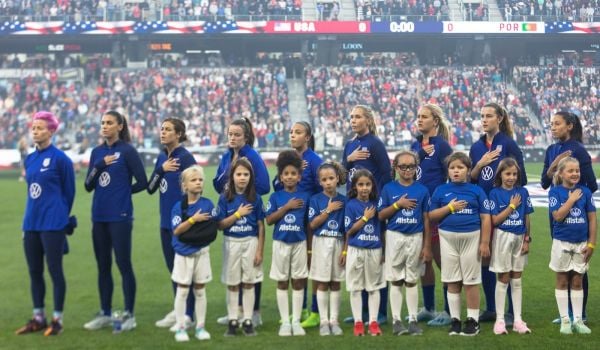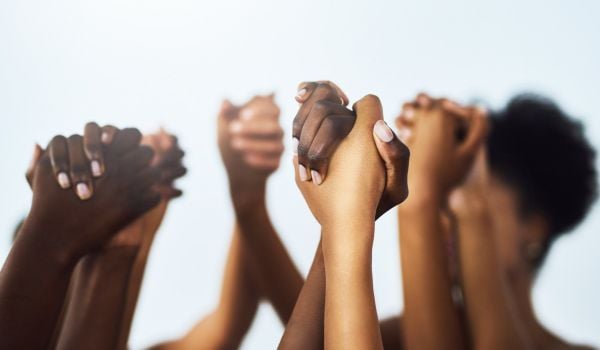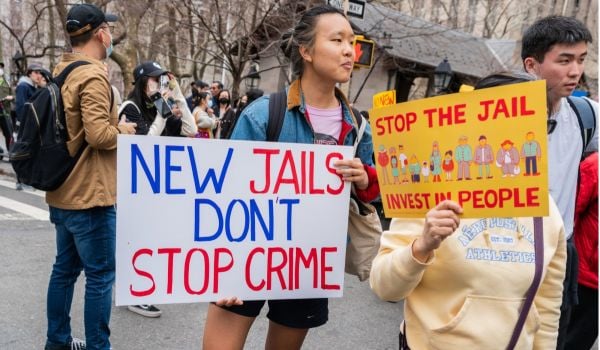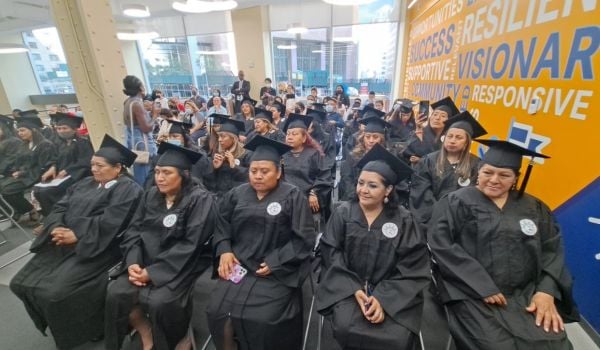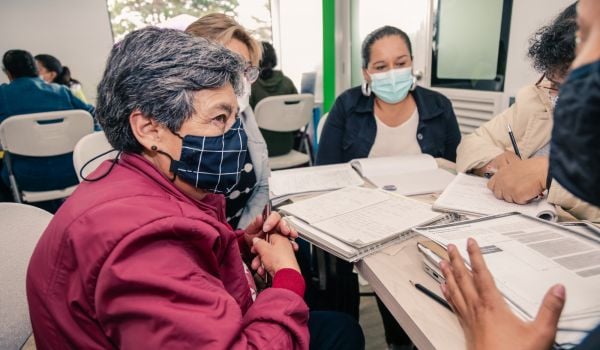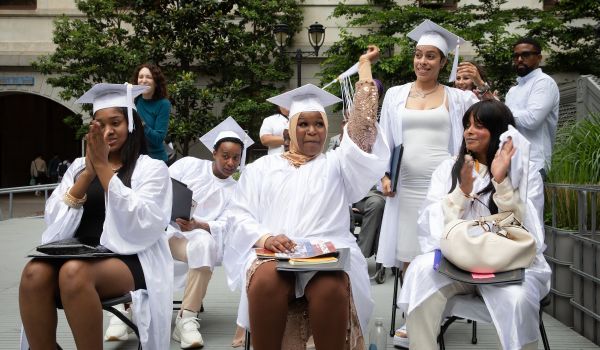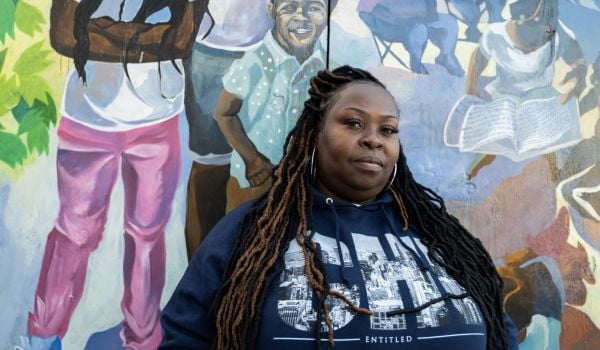This week, planners, policymakers and urban practitioners from across the world are gathering in Kuala Lumpur for World Urban Forum 9. This story is part of Next City’s coverage of the Forum. For more stories, visit our World Urban Forum 9 page here.
In 2012, the brutal gang rape of a student on a bus in Delhi shocked India. The young woman died days later and protesters poured onto the city’s streets to decry the attack itself and violence against women in general. A horrific moment of reckoning, the incident sparked a nationwide conversation about the treatment of women in India, and galvanized people like Elsa Marie D’Silva, then working in the aviation industry, to take concrete action.
D’Silva walked away from a lucrative 20-year career to set up the Red Dot Foundation, a Mumbai-based nonprofit that runs the Safecity platform, which tracks incidents of sexual harassment in cities and towns using crowd-sourced data. “The statistics are very ugly,” D’Silva told an audience at Next City’s World Stage at World Urban Forum 9 on Saturday. “Globally, it’s a pandemic, where one in three women on average experiences some form of sexual violence in their lifetime. In India it’s much higher [and] 80 percent of us never talk about it.”
Other statistics collated in a survey on behalf of UN Women are equally shocking: 75 percent of women and girls faced sexual violence in their own neighborhoods, nine out of 10 experienced sexual aggression or violence, and half of men said they had sexually harassed or been violent toward a woman in public, with male respondents overwhelmingly blaming women for their own behavior. “What I found when I started working on this issue is that actually there was not enough data,” D’Silva says.
So she set about changing that. Since its launch in December 2012, the platform has collected more than 11,000 stories from women in countries including India, Nepal, Cameroon and the Philippines. A nongovernmental organization in Kuala Lumpur, where the World Urban Forum is being held, is also gearing up to launch the platform in Malaysia.
As it has spread globally, its use has been adapted to the needs of different contexts. In the informal settlement of Kibera, in Nairobi, data is collected entirely offline through so-called “Talking Boxes” set up in schools and other public spaces. Young women can share their experiences by placing anonymous notes in the boxes.
“There’s a lot of sexual harassment in Kibera, and at times, because of their financial status, girls end up accepting these people taking advantage of them because they have no option and they also have no one to share with when they’re being harassed,” said Jane Anyango, the founder and director of the Polycom Development Project. “And out of this we discovered so much: that the children were going through harassment—some were being physically abused—but they were not able to tell anybody.”
Both Anyango and D’Silva are using the data to identify trends and support the implementation of offline initiatives designed to combat sexual harassment. In India, this has included painting wall murals in harassment hotspots to discourage men from ogling women and pushing Mumbai and Delhi police to improve their response times, while in Nairobi it has ranged from starting sports programs that aim to boost girls’ confidence, to radio shows that teach boys how to better interact with women.
“With this data we can talk about long-term interventions,” says Anyango. “We’re able to go into what do we do so that it doesn’t happen again. We’re able to bring other stakeholders on board [such as] schools and other community practitioners, and we’re also talking about the policymakers because we have data to back up what we’re telling them.”
These are, D’Silva says, hyper-local solutions that can have a big impact on women’s lives, through mobilizing communities and holding institutions accountable. But she says policymakers still need to do far more to ensure women feel safe in public spaces and on public transport if they want them to, for example, become more engaged in the workforce, as India does.
“When we’re talking about urban planning, about cities that we’re building for the future and cities for all, we have to, I believe, address sexual violence because it’s a development challenge,” she says. “We have to recognize, first, that it’s a development challenge before we do anything else.”

Holly Robertson is a freelance journalist based in Cambodia who focuses on human rights, gender and the environment. Her work has been published by The Washington Post, Guardian, BBC, Columbia Journalism Review, VICE and Mashable, among others.



